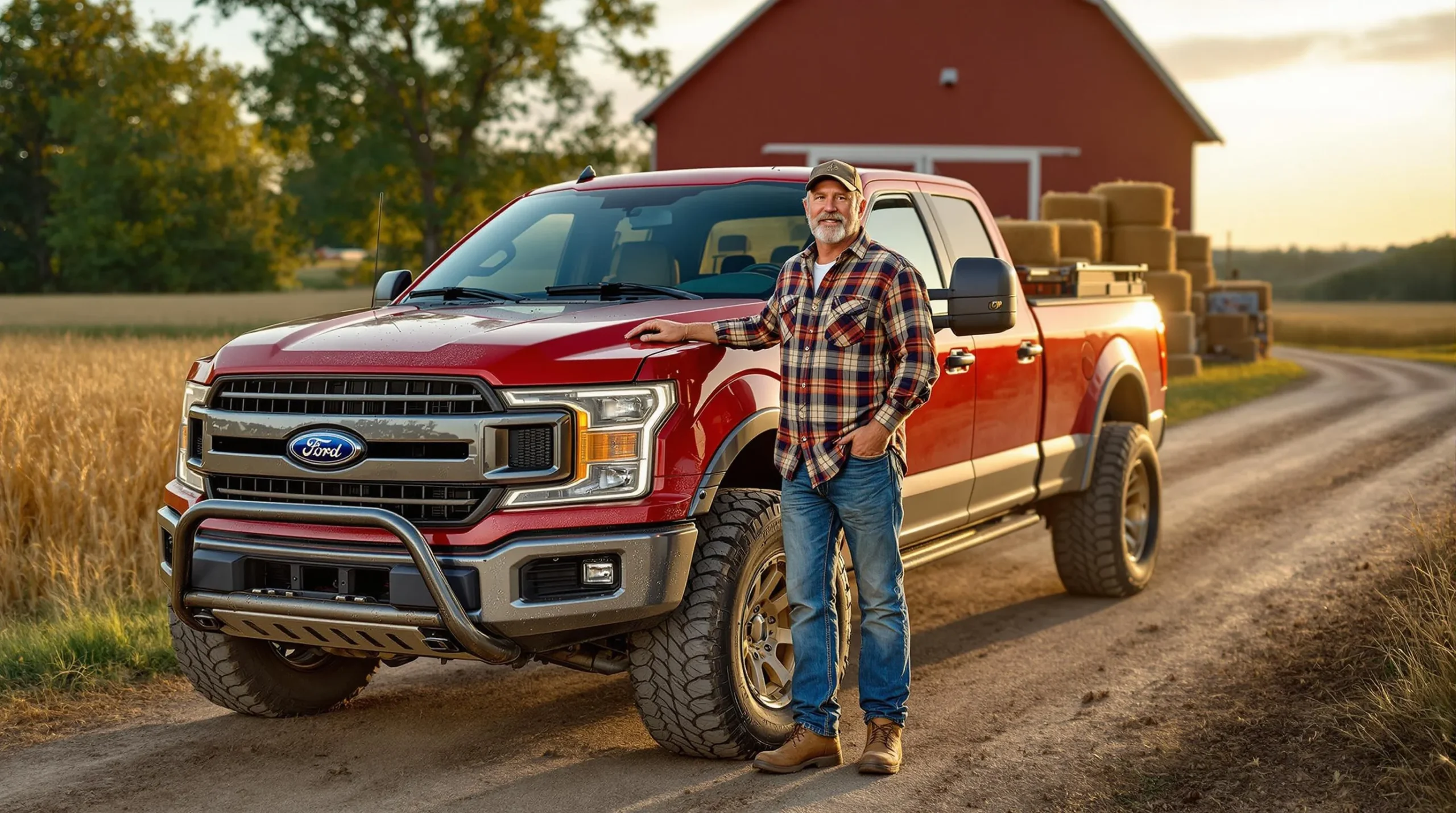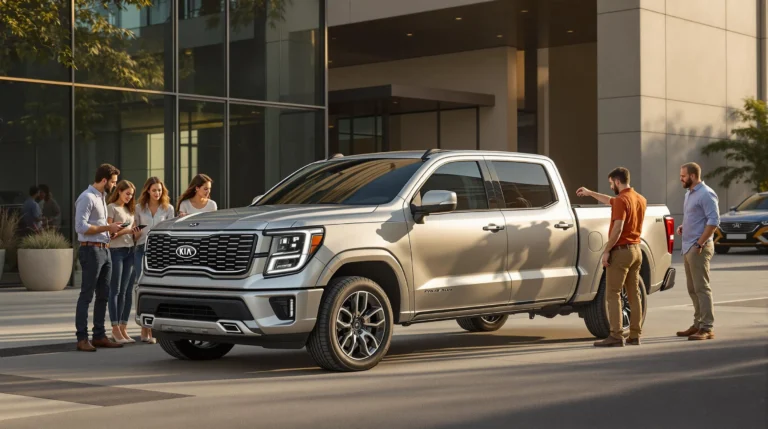Best Farm Truck Guide: 10 Most Reliable Models for 2024
Choosing the best farm truck isn’t just about horsepower; it’s about finding a reliable partner for your daily tasks. Whether you’re hauling hay, towing equipment, or just navigating rough terrain, your farm truck is an essential tool. Let’s explore what makes a truck truly shine on the farm.
What Makes Good Farm Trucks? Reliability and Capability
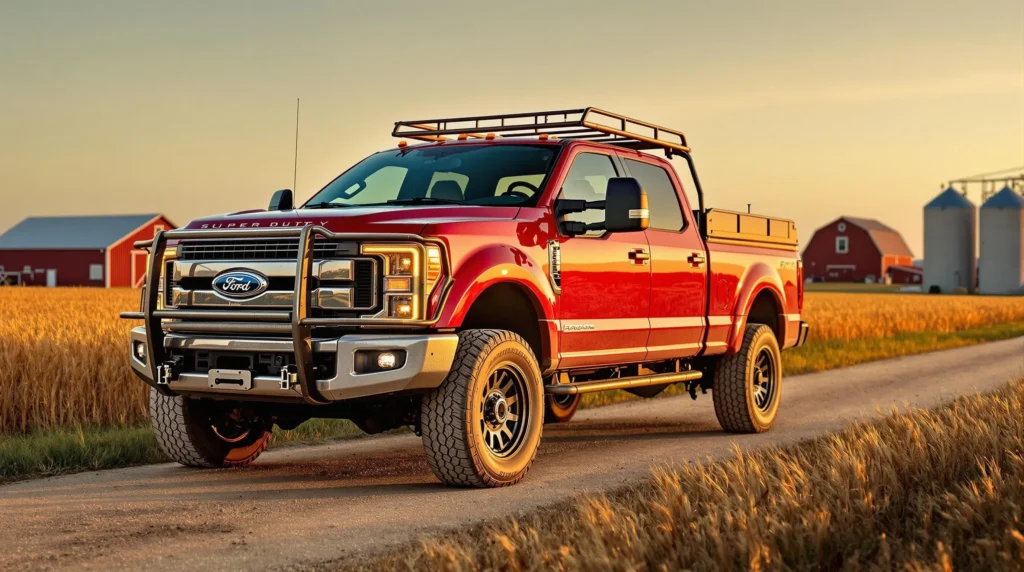
When you’re looking at good farm trucks, reliability is king. You need a truck that starts every morning and won’t leave you stranded in the middle of a field. Beyond that, capability is crucial. Think about what you’ll be doing most often. Do you need to tow heavy loads? Will you be carrying a lot of supplies in the bed? These factors will heavily influence your choice. For instance, a ford f-150 can be a great all-around option for lighter tasks, but for heavier duty work, you might need something more substantial.
While traditional trucks dominate farming, it’s worth keeping an eye on future innovations like the upcoming Caterpillar pickup truck, which could revolutionize farm vehicles.
Consider the long haul too. A truck that can last 15 years or more on a farm is a valuable asset. This often means looking at trucks with strong reputations for durability and ease of maintenance.
- Reliability: Look for models with consistently high owner satisfaction ratings.
- Towing Capacity: Match the truck’s towing capacity to your typical trailer loads.
- Payload Capacity: Ensure the truck bed can handle the weight you’ll be carrying.
- Maintenance: Consider the cost and availability of parts and service.
According to Kelley Blue Book’s latest truck value guide, durability and resale value remain key factors for farm vehicles.
You can learn more about the future of trucks, like the potential for a 2025 caterpillar pickup truck, by checking out resources that cover upcoming models.
Finding the Best Pickup Truck for Farmers: Matching Your Needs
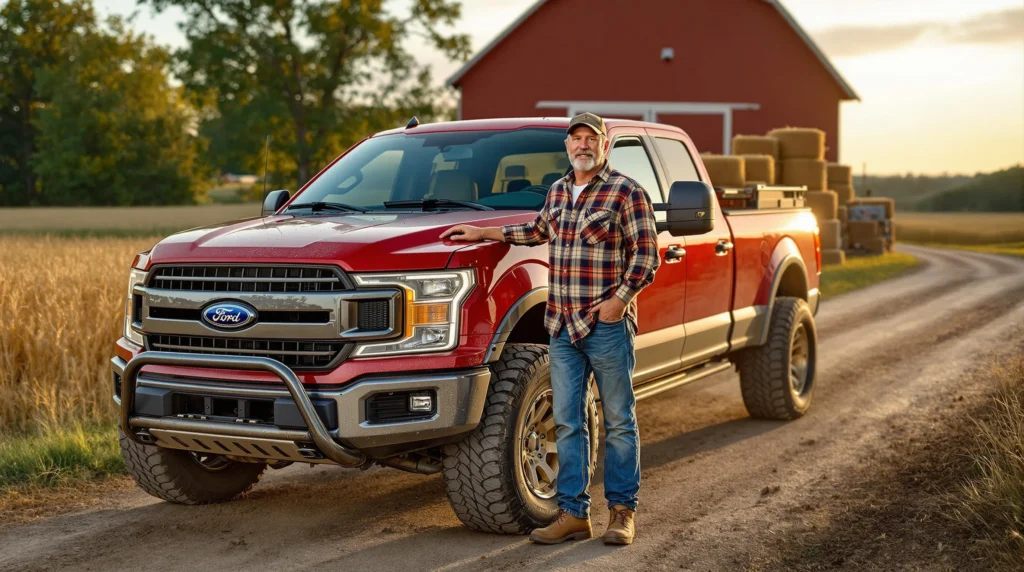
The best pickup truck for farmers isn’t a one-size-fits-all answer. It depends heavily on the specific demands of your farm. A smaller farm might find a 1/2 ton truck like a Ford F-150 or Chevy Silverado 1500 perfectly adequate for daily tasks and lighter hauling. These trucks offer a good balance of fuel efficiency and capability.
However, larger operations often require the muscle of a heavy-duty pickup. Trucks like the ford super duty (F-250 and F-350) are built for serious work, offering significantly higher towing and payload capacities. These trucks are designed to handle the toughest farm jobs, from hauling large equipment to moving tons of feed.
Think about the cab configuration too. A crew cab offers more passenger space, which can be essential if you have a farm crew or a family. Consider how often you’ll have extra people riding along.
- Farm Size: Larger farms typically need heavier-duty trucks.
- Typical Loads: Estimate the weight and frequency of your heaviest loads.
- Passenger Needs: Determine if a crew cab is necessary.
- Terrain: Consider if you need four-wheel drive for navigating muddy or uneven fields.
The EPA’s official fuel economy ratings show that modern trucks can balance power with reasonable fuel consumption.
Speaking of different types of vehicles, you might find it interesting to compare electric options like rivian vs tesla to traditional farm trucks, even though they might not be the primary choice for heavy farm work right now.
For those interested in alternative power sources, our detailed comparison of Rivian and Tesla trucks offers insights into how electric vehicles might fit into agricultural work.
The Ideal Farm Pickup Truck: Balancing Power and Practicality
The ideal farm pickup truck strikes a balance between raw power and everyday practicality. It needs to be tough enough to handle demanding tasks but also comfortable and efficient enough for daily use. Features like a durable bed liner, ample storage compartments, and user-friendly technology can make a big difference in your daily workflow.
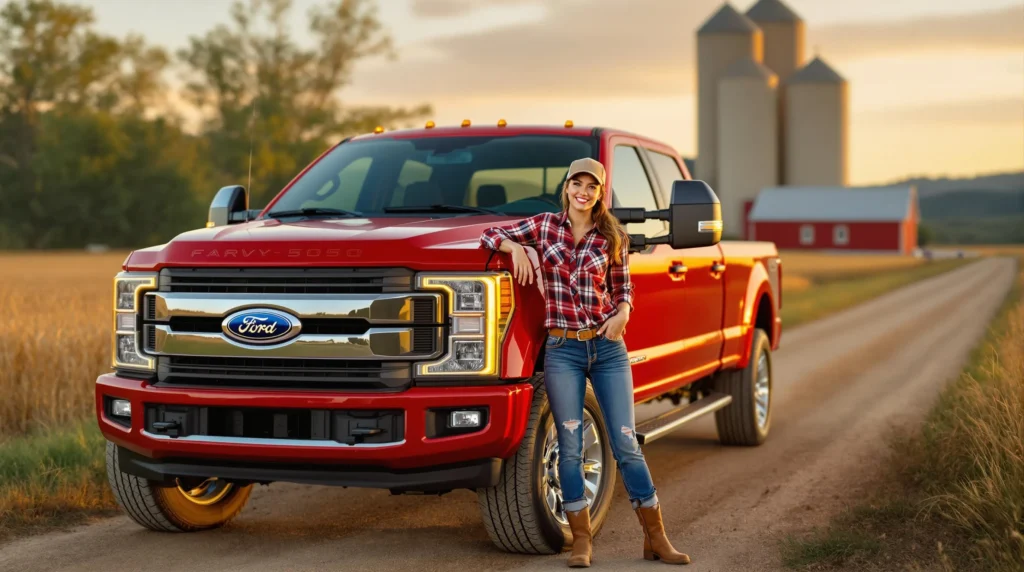
NHTSA safety ratings demonstrate significant improvements in truck safety features over the past decade.
Think about the type of farm work you do most often. If you frequently tow trailers, pay close attention to the truck’s towing features, such as integrated trailer brake controllers and hitch assist systems. If you often carry loose materials, a spray-in bed liner can protect the truck bed from damage.
- Bed Features: Consider bed liners, tie-down points, and lighting.
- Towing Technology: Look for features that simplify trailer hookup and towing.
- Interior Comfort: Choose a cab that offers comfortable seating and intuitive controls.
- Fuel Efficiency: While not the primary concern for many farm trucks, it’s still a factor to consider for daily driving.
Understanding exhaust system maintenance is crucial for keeping your farm truck running efficiently.
If you’re curious about the lifespan of different trucks, you might find articles discussing the best old trucks interesting, even though you’re likely looking for something newer.
Choosing the Best Ranch Truck: Durability for Demanding Environments
The term “best ranch truck” often overlaps with the idea of the best farm truck, but it emphasizes durability and the ability to handle rough terrain. Ranches often involve more off-road driving and navigating challenging landscapes. For this, four-wheel drive is almost a necessity. Ground clearance and robust suspension are also key features to look for.
Trucks like the ford super duty and Ram Heavy Duty models are popular choices for ranch work due to their rugged construction and powerful engines. Consider features like skid plates to protect the undercarriage and all-terrain tires for better traction.
- Four-Wheel Drive: Essential for navigating varied terrain.
- Ground Clearance: Prevents scraping on uneven surfaces.
- Suspension: Choose a robust suspension system for a smoother ride on rough roads.
- Tire Type: All-terrain tires offer better grip on loose surfaces.
You might also be interested in how different trucks compare in terms of technology, even if it’s not your primary concern for a farm truck. Articles comparing features like those in a hummer ev suv adapter tesla supercharger context can provide insights into automotive advancements.
Many farmers find inspiration in classic truck models when choosing their next vehicle, as these time-tested designs often inform modern reliability.
Finding a Reliable Work Truck: Longevity and Value
Ultimately, you’re looking for a reliable truck that will serve as a dependable work truck for years to come. This often means considering models with a proven track record of longevity and strong resale value. While newer trucks offer the latest technology, don’t discount the value of a well-maintained older model that has stood the test of time.
When considering older trucks, pay close attention to their maintenance history and overall condition. A truck that has been well-cared for can still offer many years of reliable service. However, for heavy farm use, a newer model with updated safety features and technology might be a better long-term investment.
- Maintenance History: Review service records to assess past care.
- Resale Value: Consider models that hold their value well.
- Safety Features: Prioritize safety features, especially if the truck will be used on public roads.
- Overall Condition: Thoroughly inspect any used truck for signs of wear and tear.
If you’re thinking about getting a used truck, you might find resources discussing the merits of different generations, like those focusing on obs trucks (Obsession Ford trucks), helpful in your research.
Conclusion:
Choosing the best farm truck is a significant decision that impacts your daily operations. By carefully considering your specific needs, from towing capacity to terrain requirements, you can find a truck that will be a reliable and valuable asset for years to come. Remember to prioritize reliability, capability, and durability when making your choice.
For further reading on related topics, you might find our article on how old do you have to be to get cdl interesting if you’re considering hiring drivers for your farm. Also, if you’re thinking about the logistics of transporting goods, our piece on semi trailer types could be informative. And if you’re curious about the maintenance side, our article on 5 exhaust pipe considerations might be useful. Finally, for those considering different vehicle types for farm tasks, our comparison of straight truck vs truck tractor could offer valuable insights. You might also find our article on general farm truck considerations helpful for a broader perspective.
For those considering commercial use of their farm truck, you might want to explore what it takes to get a CDL for expanded operating capabilities.
What are your experiences with farm trucks? Share your thoughts and recommendations in the comments below!
Let me know if you would like any adjustments or further refinements to this article!
There are no reviews yet. Be the first one to write one.

